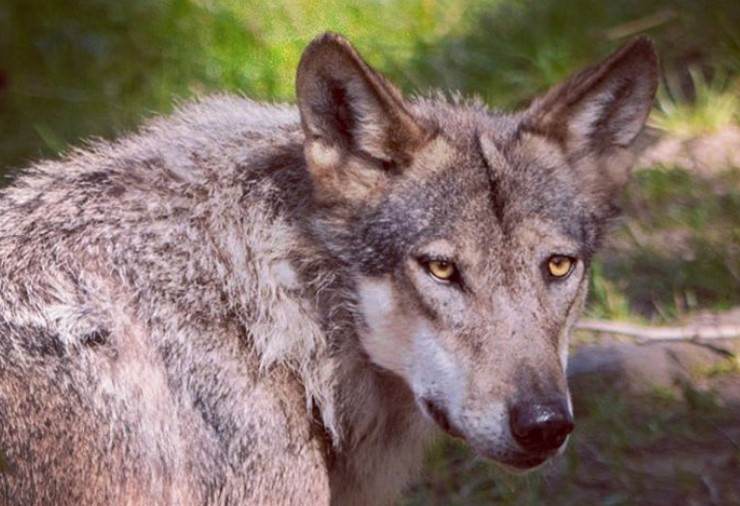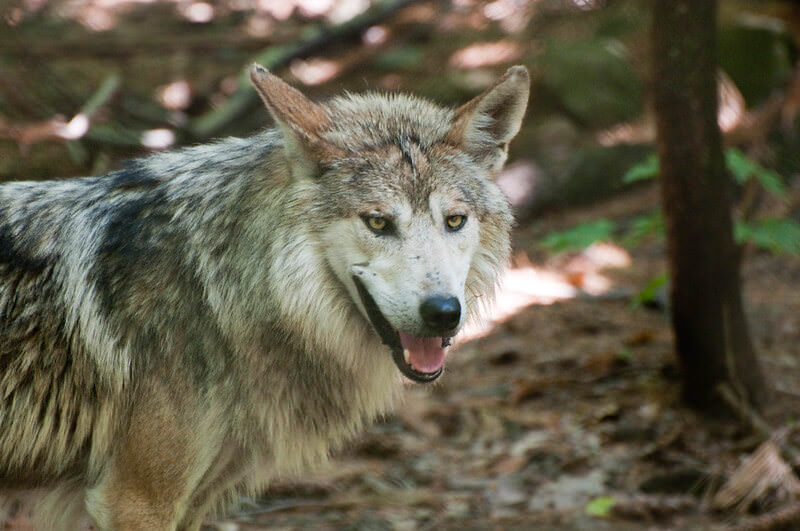Native American wolf names have deep cultural significance and reflect the spiritual connection between humans and nature. For centuries, Native American tribes have revered wolves as symbols of strength, loyalty, and wisdom. These names often carry profound meanings that go beyond mere identification, serving as a testament to the rich heritage and traditions of indigenous cultures.
The connection between Native Americans and wolves is rooted in ancient mythology and spiritual beliefs. Wolves are seen as guides and teachers, embodying qualities that humans aspire to emulate. Through the use of wolf names, Native Americans express their respect for these majestic creatures and honor their place in the natural world.
This article delves into the fascinating world of Native American wolf names, exploring their meanings, cultural significance, and the stories behind them. Whether you're interested in Native American culture, wolf symbolism, or simply looking for a unique name, this guide will provide valuable insights into this timeless tradition.
Read also:Cox Cable 24 Hour Customer Service
Table of Contents
- Introduction to Native American Wolf Names
- Cultural Significance of Wolf Names
- Spiritual Connection Between Wolves and Humans
- Popular Native American Wolf Names
- Meanings Behind Native American Wolf Names
- Tribal Differences in Naming Traditions
- Historical Context of Wolf Names
- Modern Usage of Native American Wolf Names
- Symbolism of Wolves in Native American Culture
- Conclusion
Introduction to Native American Wolf Names
Native American wolf names are more than just labels; they are expressions of identity, spirituality, and cultural heritage. These names often reflect the deep bond between Native American tribes and the natural world. Wolves, in particular, hold a special place in Native American mythology, symbolizing qualities such as loyalty, intelligence, and adaptability.
For many tribes, wolves are seen as spiritual guides and protectors. The use of wolf names in Native American culture is a way to honor these majestic animals and incorporate their qualities into human life. By adopting a wolf name, individuals can embody the strength and wisdom associated with these creatures.
This section explores the origins of Native American wolf names and their importance in indigenous cultures. Understanding the cultural context behind these names provides valuable insights into the worldview of Native American tribes.
Cultural Significance of Wolf Names
Wolf names play a crucial role in Native American culture, serving as a link between the human and spiritual realms. These names are often given during significant life events, such as birth, coming-of-age ceremonies, or vision quests. The process of naming is steeped in tradition and involves elders or spiritual leaders who possess the knowledge to select an appropriate name.
Each name carries a specific meaning and is chosen based on the individual's personality, life path, or connection to nature. For example, a person who exhibits leadership qualities might be given a name like "Wolf Leader" or "Running Wolf," while someone known for their loyalty might receive a name like "Faithful Wolf."
The cultural significance of wolf names extends beyond individual identity. They also serve as a reminder of the tribe's connection to the land and its wildlife. By honoring wolves through naming practices, Native American tribes reinforce their commitment to preserving the natural world and maintaining harmony with all living beings.
Read also:Jake The Snake Roberts Wwf
Spiritual Connection Between Wolves and Humans
In Native American spirituality, wolves are revered as powerful spirit animals and totems. They are believed to possess qualities that humans can learn from and incorporate into their own lives. Wolves are seen as symbols of loyalty, communication, and teamwork, traits that are highly valued in many Native American cultures.
Many tribes believe that wolves have the ability to communicate with the spirit world and act as intermediaries between humans and the divine. This spiritual connection is reflected in the use of wolf names, which are thought to imbue individuals with the qualities of their namesake.
Additionally, wolves are often associated with protection and guidance. In some traditions, a wolf name is believed to offer spiritual protection and strength to the bearer, helping them navigate life's challenges and stay connected to their roots.
Popular Native American Wolf Names
Male Wolf Names
Many Native American tribes have specific wolf names for men, often reflecting qualities such as strength, courage, and leadership. Here are some popular male wolf names:
- Running Wolf - Symbolizes speed and agility
- Gray Wolf - Represents wisdom and experience
- Wolf Chief - Denotes leadership and authority
- Wolf Track - Signifies a journey or path
- Wolf Spirit - Embodies the spiritual connection to wolves
These names often carry deep meanings that reflect the individual's role within the tribe and their connection to the natural world.
Female Wolf Names
Female wolf names in Native American culture often emphasize qualities such as nurturing, loyalty, and intuition. Some popular names include:
- Wolf Woman - Symbolizes strength and resilience
- White Wolf - Represents purity and spiritual insight
- She-Wolf - Denotes independence and courage
- Moon Wolf - Associated with intuition and the night
- Wolf Mother - Embodies nurturing and protection
These names highlight the important roles that women play in Native American societies and their connection to the natural world.
Meanings Behind Native American Wolf Names
Each Native American wolf name carries a unique meaning that reflects the qualities of the individual and their connection to wolves. These meanings are often derived from the tribe's language and cultural beliefs. For example:
- Running Wolf - Represents speed and endurance
- Gray Wolf - Symbolizes wisdom and experience
- Wolf Spirit - Embodies the spiritual connection to wolves
- White Wolf - Denotes purity and spiritual insight
- Wolf Woman - Reflects strength and resilience
Understanding the meanings behind these names provides insight into the values and beliefs of Native American cultures. It also highlights the importance of naming practices in preserving cultural heritage and identity.
Tribal Differences in Naming Traditions
While many Native American tribes share a reverence for wolves, there are differences in naming traditions across cultures. These variations reflect the unique histories, languages, and spiritual beliefs of each tribe. For example:
- Navajo: Wolves are seen as protectors and are often associated with healing.
- Cheyenne: Wolf names are given during vision quests and reflect the individual's spiritual journey.
- Cherokee: Wolves are symbols of loyalty and are often associated with family and community.
These differences highlight the diversity within Native American cultures and the importance of understanding the specific traditions of each tribe.
Historical Context of Wolf Names
The use of wolf names in Native American culture has deep historical roots. For centuries, wolves have been an integral part of the natural world and have played a significant role in the lives of indigenous peoples. Historical accounts and oral traditions provide insight into the origins of wolf names and their significance in Native American societies.
During the pre-colonial era, wolves were respected as powerful hunters and were often observed by Native American tribes to learn hunting techniques and strategies. This observation led to the development of wolf names that reflected the qualities and behaviors of these animals.
As European settlers arrived in North America, the relationship between Native Americans and wolves began to change. Wolves were often viewed as threats by settlers, leading to widespread persecution and declining populations. Despite these challenges, Native American tribes continued to honor wolves through naming practices and spiritual traditions.
Modern Usage of Native American Wolf Names
In modern times, Native American wolf names continue to be used in various contexts, including naming ceremonies, spiritual practices, and even as personal names. Many individuals choose wolf names to honor their heritage or express their connection to nature.
However, it's important to approach the use of Native American names with respect and understanding. Cultural appropriation and misuse of sacred traditions can perpetuate stereotypes and disrespect indigenous cultures. If you're interested in adopting a Native American wolf name, consider learning more about the culture and seeking guidance from tribal elders or spiritual leaders.
Additionally, modern usage of wolf names extends beyond personal identity. They are often used in literature, art, and media to celebrate Native American culture and raise awareness about environmental issues.
Symbolism of Wolves in Native American Culture
Wolves hold a special place in Native American symbolism, representing a wide range of qualities and concepts. Some of the most common symbols associated with wolves include:
- Strength and resilience
- Loyalty and teamwork
- Intuition and spiritual insight
- Protection and guidance
These symbols are reflected in the use of wolf names, which serve as reminders of the qualities that humans can strive to embody. Wolves are also seen as teachers and guides, offering lessons about survival, communication, and adaptability.
In many Native American stories and myths, wolves play important roles as protectors, hunters, and spiritual beings. These narratives reinforce the deep connection between humans and wolves and highlight the importance of respecting and preserving the natural world.
Conclusion
Native American wolf names are a testament to the rich cultural heritage and spiritual beliefs of indigenous peoples. They reflect the deep connection between humans and nature, offering valuable insights into the worldview of Native American tribes. By exploring the meanings and traditions behind these names, we can gain a deeper appreciation for the qualities they represent and the importance of preserving cultural heritage.
We encourage readers to share their thoughts and experiences in the comments section below. If you're interested in learning more about Native American culture, consider exploring other articles on our site. Together, we can celebrate and honor the traditions of indigenous peoples and promote a greater understanding of their contributions to our shared history.
References:
- Smithsonian National Museum of the American Indian
- Native Languages of the Americas
- First Peoples: A Documentary Survey of American Indian History by Colin G. Calloway


